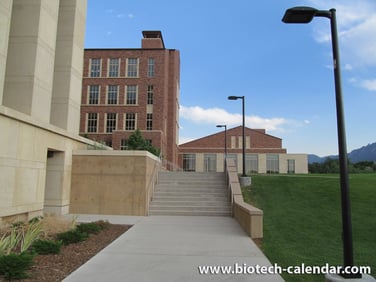 It is well known that infants rely on their mothers for food and nutrients in their early years. However, the effect that the hormones in this food have on an infant's development has not previously been known. Recent research conducted at the University of Colorado, Anschutz Medical Center has shown that hormones in human breast milk contribute to the health of the feeding infant. (Image by Voiceboks via Wikimedia Commons)
It is well known that infants rely on their mothers for food and nutrients in their early years. However, the effect that the hormones in this food have on an infant's development has not previously been known. Recent research conducted at the University of Colorado, Anschutz Medical Center has shown that hormones in human breast milk contribute to the health of the feeding infant. (Image by Voiceboks via Wikimedia Commons)
The research, conducted at the Anschutz Medical Campus in Aurora, CO found that the hormones in the breast milk that infants drink play a role in developing healthy bacteria in the infant's gut. Developing these healthy bacteria can protect the infant against health problems later in life, such as obesity and intestinal inflammation. Through studying infants' stool, the Colorado research team found that breast milk that had high levels of insulin and leptin contributed to microbial diversity in the infant's gut, both of which help the intestine build barriers to protect against harmful toxins.
|
RELATED NEWS: UC Anschutz Expands With New Gates Biomanufacturing Facility |
Bridget Young, an author on this study and pediatric nutrition professor at CU Anschutz explained that: “This is the first study
of its kind to suggest that hormones in human milk may play an important role in shaping a healthy infant microbiome. We’ve known for a long time that breast milk contributes to infant intestinal maturation and healthy growth. This study suggests that hormones in milk may be partly responsible for this positive impact through interactions with the infant’s developing microbiome.”
Furthermore, the researchers also studied the microbiome of babies feeding from obese mothers and found that the microbiomes of these babies greatly differed from those of babies feeding from mothers of lower weight. The levels of gammaproteobacteria - bacteria that help the intestine develop and cause a normal amount of inflammation to protect against inflammatory diseases later in life - were found to be lower in infants born to obese mothers.
“Just like children learn language and social cues as they grow, their digestive system learns how to regulate itself,” explained Dominick Lemas, another author of this study. “What we’ve found is that hormones in breast milk are linked to the development of infants’ microbiome, potentially having long-term effects on children’s intestinal and autoimmune health.”
This study was published in the American Journal of Clinical Nutrition.


(Images courtesy of Biotechnology Calendar, Inc.)
The University of Colorado, Anschutz Medical Center is a top-ranked research institution, receiving millions of dollars annually in the form of grants, awards, and donations. In the 2014 fiscal year, the life science R&D expenditures at the university exceeded $383 million. Funding given to the university is used to establish new research buildings and support vital life science research:
- The Gates Biomanufacturing Facility recently opened on the Anschutz Medical Campus. This new 14,000 sq. ft. laboratory will propel The University of Colorado's Medical School into a major hub for adult stem cell and protein-based research.
- The University of Colorado Anschutz Depression Center received a $10 million gift to support research into mood and anxiety disorders.
With this funding, researchers in Colorado have the means to purchase many new lab products that will assist their research projects and clinical trials. Biotechnology Calendar, Inc. produces an annual BioResearch Product Faire™ in Aurora that is a premiere opportunity for laboratory suppliers to market to Anschutz life science researchers, and allows the researchers to find the best products and technologies for their work.
The 7th Annual BioResearch Product Faire™ Event in Aurora, CO will be held on July 22, 2016 and is expected to attract over 400 life scientists. Last year, 450 attendees came from 12 different research buildings and 49 on-campus departments.
To learn more about exhibiting at this popular event, visit the link below:
While in Colorado, make the most of your time by participating at the 18th Annual BioResearch Product Faire™ Event at the University of Colorado Boulder on July 20, 2016.
Learn more about the Boulder, CO opportunity below:



